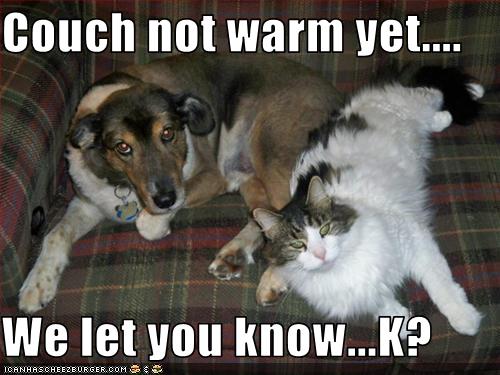-
Keep Your Pets Warm This Winter
Posted on December 24th, 2012Merry Christmas from Clear the Air! We would like to share some tips to keeping your pets warm this winter from the Humane Society of the United States.
Keep in mind, dogs and cats are social animals who crave human companionship. Your animal companions deserve to live indoors with you and your family.
In many areas, winter is a season of bitter cold and numbing wetness. Extra precautions during winter months will make sure your four-footed family members stay safe and warm.

Help your pets remain happy and healthy during the colder months by following these simple guidelines:
Indoors and warm – Don’t leave dogs or cats outdoors when the temperature drops. Most dogs, and all cats, are safer indoors, except when taken out for exercise. No matter what the temperature, windchill can threaten a pet’s life. Regardless of the season, shorthaired, very young, or old dogs and all cats should never be left outside without supervision. Short-coated dogs may feel more comfortable wearing a sweater during walks.
The best way to keep your pets safe (and happy) is to keep them with you.
If your dog spends a lot of time outside – A dog or cat is happiest and healthiest when kept indoors. If for some reason your dog is outdoors much of the day, he or she must be protected by a dry, draft-free shelter that is large enough to allow the dog to sit and lie down comfortably, but small enough to hold in his/her body heat. The floor should be raised a few inches off the ground and covered with cedar shavings or straw. The house should be turned to face away from the wind, and the doorway should be covered with waterproof burlap or heavy plastic.
Keep the water flowing – Pets who spend a lot of time outdoors need more food in the winter because keeping warm depletes energy. Routinely check your pet’s water dish to make certain the water is fresh and unfrozen. Use plastic food and water bowls rather than metal; when the temperature is low, your pet’s tongue can stick and freeze to metal.
Be careful with cars – Warm engines in parked cars attract cats and small wildlife, who may crawl up under the hood. To avoid injuring any hidden animals, bang on your car’s hood to scare them away before starting your engine.
Safety and salt – The salt and other chemicals used to melt snow and ice can irritate the pads of your pet’s feet. Wipe all paws with a damp towel before your pet licks them and irritates his/her mouth.
Avoid antifreeze – Antifreeze is a deadly poison, but it has a sweet taste that may attract animals and children. Wipe up spills and store antifreeze (and all household chemicals) out of reach. Better yet, use antifreeze-coolant made with propylene glycol; if swallowed in small amounts, it will not hurt pets, wildlife, or your family.
The best tip of all: keep your pets with you – Probably the best prescription for winter’s woes is to keep your dog or cat inside with you and your family. The happiest dogs are those who are taken out frequently for walks and exercise, but kept inside the rest of the time.
